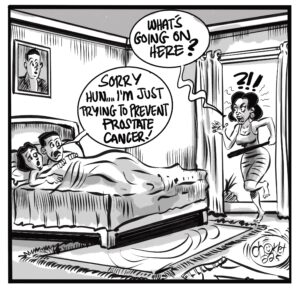Law Association of Zambia president Eddie Mwitwa has told the Constitutional Court that government did not obtain the people’s views on the proposed amendments to the Constitution of Zambia.
Mwitwa testified that the people were not involved because to his understanding, “the people” means views of the people in every province and district and not limited to the select few and institutions.
In this matter, LAZ and Chapter One Foundation Limited are challenging government’s decision to alter the Constitution of Zambia through (Amendment) Bill No.10 of 2019.
They cited Attorney General Likando Kalaluka as the respondent in the matter.
When the matter came up before Constitutional Court president Hilda Chibomba, Justices Annie Sitali, Mungeni Mulenga, Enock Mulembe, Palani Mulonda, Martin Musaluke and professor Margaret Munalula for hearing of the petition, Mwitwa, who is the first witness, confirmed that LAZ was invited to participate in National Dialogue Forum (NDF) earlier this year and requested to send two representatives, which it did.
He explained that prior to that, LAZ was requested by the Ministry of Justice to make submissions to the said ministry as they were advised that the ministry was in the process of refining the Constitution of Zambia as amended in 2016.
Mwitwa said their understanding as LAZ was that the NDF was going to refine the Constitution, not uttering it’s contents.
He told the court that the process that the nation went through prior to the 2016 amendments to the Constitution was much more inclusive and the consultations were broader.
Mwitwa testified that he was not aware of the resolutions made at the NDF but added that he was aware of the proposals that came out of it.
He said he had came to know through the media that there was a proposal for reintroduction of deputy ministers and also that hearing and determination of a presidential petition should be extended from the current 14 days to 30 days.
He said LAZ did not submit to the select Committee of the National Assembly because at time it was invited to make submissions, the petition was already before court on August 12 and the National Assembly was joined to the petition as third respondent challenging the legality of the Constitutional (Amendment) Bill No.10.
“When we met as counsel of LAZ, we resolved that it would not be appropriate for us to participate in the deliberations of the Bill at Parliament when we were challenging the decision to amend the Constitution in the manner proposed. We were also of the view that we would not be taken seriously if we participated in the process in Parliament when we were against the process to amend the Constitution in the manner proposed,” Mwitwa said.
“The position of LAZ is that if the Constitutional (Amendment) Bill were to be enacted into law, it would not be achieving the stated objective of refining the Constitution as we were informed by the Ministry of Justice but uttering the basic structure of the Constitution. One of the ways we believe this will be done is by increasing the powers of the executive arm of government, compromising the independence of the judiciary among others.”
Asked in cross examination by the Attorney General Likando Kalaluka to demonstrate how the national values were not taken into account when initiating the Bill, Mwitwa said he had not seen any evidence to show that the President or executive took into account the national values and principles as set out in Article 8 of the Constitution.
“The respondents in the affidavit in opposition has not provided such evidence. Our view is that, that evidence if it at all it exists, is in the custody of the respondent,” Mwitwa said.
He said there should be a public document generated by the Ministry of Justice that explains to the citizens the justification for proposing to amend the Constitution and it must demonstrate how that amendment promotes constitutionalism, democracy, equality, good governance and the rule of Law.
“The proposed amendments are unconstitutional because our reading of the proposed amendments suggest to us that the national values and principles were not taken into account when initiating Bill 10,” Mwitwa said.
And asked by Solicitor General Abraham Mwansa, “considering that the Minister of Justice invited LAZ to make submissions, considering that there was a forum in Siavonga, considering that there was the National Dialogue Forum, would you still maintain that the executive did not obtain the views of the people on the proposed amendments to the Constitution?”
Mwitwa responded in the affirmative.
And in re-examination, the witness said the people were not involved because to his understanding, the people means the views of the people in every province and district would have to be involved, and it should not be limited to the select few and institutions.
Mwitwa added that his understanding of refining the Constitution was intended to improve or make something better and not lead to removing or diluting provisions of the law.
“In the process of refining, the refiner is limited to that extent, making something better,” he said.
At this point, LAZ asked for an adjournment to allow them to call another witness.
The body of lawyers said the application for an adjournment was necessitated by the way the State conducted its cross examination.
But the Attorney General objected to the request for an adjournment, saying it was becoming clear that LAZ was not ready to prosecute its case.
The court however, allowed the the adjournment to Thursday.
Meanwhile, Chapter One Foundation, through its lawyer Linda Kasonde, sought guidance of the court on whether its witness could be allowed to testify through Skype as the witness was abroad but the court adjourned the matter in order for the State to consult on whether the Zambian law allowed for such.
























